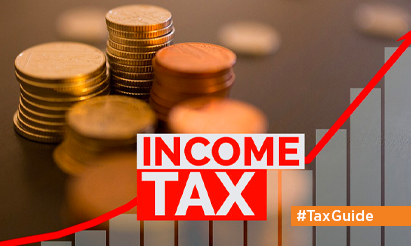Speculative Business Income Tax in India: A Comprehensive Guide!
In India, business income tax is levied on the profits earned by businesses, whether in the form of a company, partnership firm, or sole proprietorship. The tax is governed by the Income Tax Act, 1961, and administered by the Central Board of Direct Taxes (CBDT) under the Department of Revenue, Ministry of Finance.
Here are some key points to consider regarding business income tax in India:
- Business Structure: The tax treatment and applicable rates may vary depending on the legal structure of your business. Common types of business structures in India include companies, partnerships, and sole proprietorships.
- Tax Residency: A business is considered a resident in India if it is incorporated in India or if its control and management are wholly situated within India. Non-resident businesses are generally taxed on income sourced in India.
- Taxable Income: Business income tax is calculated based on the net profit earned by the business during the financial year. Net profit is determined by deducting allowable expenses and deductions from the gross receipts. Certain deductions and allowances are specified under the Income Tax Act.
- Tax Rates: The tax rates for business income can vary depending on the type of business structure and the total income earned. As of September 2021, domestic companies are subject to a flat tax rate of 25% (plus applicable surcharges and cess). However, there may be different rates and surcharges for certain categories of companies. For partnership firms and sole proprietorships, business income is generally taxed at the individual income tax rates applicable to the business owner.
- Tax Compliance: Businesses are required to maintain proper books of accounts and financial records as per the guidelines specified by the Income Tax Act. They must file an annual income tax return disclosing their business income and related details. The due date for filing returns can vary based on the type of taxpayer.
- Advance Tax: Certain taxpayers, including businesses, may be required to pay advance tax if their total tax liability for the financial year exceeds a specified threshold. Advance tax payments are made in installments during the financial year.
- Other Taxes: In addition to business income tax, there may be other taxes and levies applicable to specific industries or activities. These could include goods and services tax (GST), customs duties, excise duties, etc. It’s important to understand the relevant tax obligations specific to your business.
Remember that tax regulations can be complex, and it’s advisable to seek professional advice to ensure compliance and optimize your tax position. The information provided here is a general overview and may not cover all aspects of business income tax in India.
Disclaimer: The views expressed above are for informational purposes only based on industry reports and related news stories. PropertyPistol does not guarantee the accuracy, completeness, or reliability of the information and shall not be held responsible for any action taken based on the published information.




